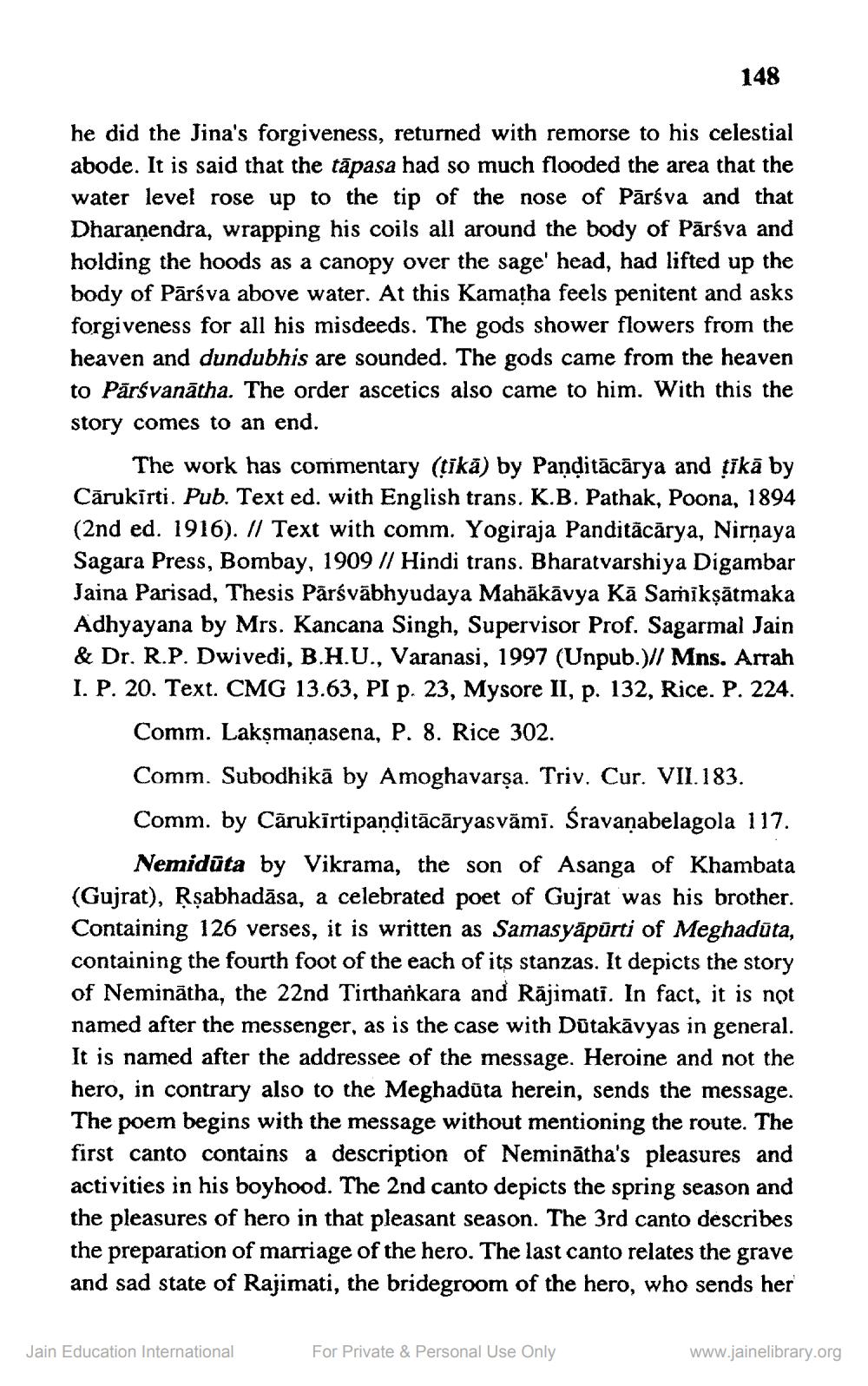________________
148
he did the Jina's forgiveness, returned with remorse to his celestial abode. It is said that the tāpasa had so much flooded the area that the water level rose up to the tip of the nose of Pārśva and that Dharanendra, wrapping his coils all around the body of Pārśva and holding the hoods as a canopy over the sage' head, had lifted up the body of Pārśva above water. At this Kamatha feels penitent and asks forgiveness for all his misdeeds. The gods shower flowers from the heaven and dundubhis are sounded. The gods came from the heaven to Pārsvanātha. The order ascetics also came to him. With this the story comes to an end.
The work has commentary (tikā) by Panditācārya and tikā by Cărukirti. Pub. Text ed. with English trans. K.B. Pathak, Poona, 1894 (2nd ed. 1916). // Text with comm. Yogiraja Panditācārya, Nirnaya Sagara Press, Bombay, 1909 // Hindi trans. Bharatvarshiya Digambar Jaina Parisad, Thesis Pārsväbhyudaya Mahākāvya Kā Sarīksātmaka Adhyayana by Mrs. Kancana Singh, Supervisor Prof. Sagarmal Jain & Dr. R.P. Dwivedi, B.H.U., Varanasi, 1997 (Unpub.)// Mns. Arrah I. P. 20. Text. CMG 13.63, PI p. 23, Mysore II, p. 132, Rice. P. 224.
Comm. Lakṣmaṇasena, P. 8. Rice 302. Comm. Subodhikā by Amoghavarşa. Triv. Cur. VII.183. Comm. by Cãrukīrtipanditācāryasvāmi. Śravanabelagola 117.
Nemidūta by Vikrama, the son of Asanga of Khambata (Gujrat), Rşabhadāsa, a celebrated poet of Gujrat was his brother. Containing 126 verses, it is written as Samasyāpūrti of Meghadūta, containing the fourth foot of the each of its stanzas. It depicts the story of Neminātha, the 22nd Tirthankara and Räjimati. In fact, it is not named after the messenger, as is the case with Dūtakāvyas in general. It is named after the addressee of the message. Heroine and not the hero, in contrary also to the Meghadūta herein, sends the message. The poem begins with the message without mentioning the route. The first canto contains a description of Neminātha's pleasures and activities in his boyhood. The 2nd canto depicts the spring season and the pleasures of hero in that pleasant season. The 3rd canto describes the preparation of marriage of the hero. The last canto relates the grave and sad state of Rajimati, the bridegroom of the hero, who sends her
Jain Education International
For Private & Personal Use Only
www.jainelibrary.org




